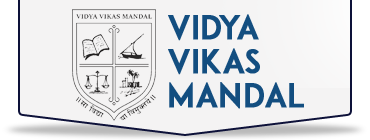Session On Crafting Compelling Research Proposals
On July 13th, 2024, VVM’s Shree Damodar College of Commerce & Economics hosted a session on Crafting Compelling Research Proposals for its teaching faculty. The event was organized by the college’s Research & Development Cell in collaboration with the Institution’s Innovation Council.
The session held from 11:00 am to 1:00 pm in the Smart Classroom, was led by Dr. Murari Tapaswi, an esteemed former OSD of Goa University and recipient of the Best Librarian Award for 2013-14 from the Government of Goa. Dr. Maithili Naik, Convenor of the IIC and R&D Cell, introduced Dr. Tapaswi, highlighting his extensive experience and contributions to academia and research.
Dr. Tapaswi began by emphasizing the importance of research proposals in securing funding and support for research projects. He outlined the key components of a strong research proposal, which include a clear research question, a comprehensive literature review, a well-defined methodology, and a realistic budget.
Key points covered in the session included:
Understanding the Research Question:
Tapaswi explained how to frame a research question that is both significant and researchable.
He stressed the need for clarity and focus in the research question to guide the proposal’s direction.
Literature Review:
The session highlighted the importance of conducting a thorough literature review.
Tapaswi provided tips on identifying relevant sources and synthesizing existing research to build a strong foundation for the proposal.
Methodology:
A detailed discussion on choosing the appropriate research methods was conducted.
Tapaswi briefly discussed about selecting qualitative or quantitative methods based on the research question and objectives.
Budgeting and Resource Allocation:
Tapaswi covered the essentials of preparing a realistic budget.
He explained how to justify the costs and ensure that all necessary resources are accounted for.
Proposal Presentation:
Tips on presenting the proposal in a clear and professional manner were shared.
Tapaswi emphasized the importance of following the guidelines provided by the funding agency or institution.
The session was interactive, with participants engaging in discussions and seeking advice. Dr. Tapaswi’s insights and practical tips were highly appreciated by the attendees. The session concluded with a vote of thanks delivered by Asst. Professor Mr. Shreyas Desai, who expressed gratitude to Dr. Tapaswi for his valuable contributions and to all participants for their active involvement. A total of 35 teaching faculty members attended the session.
